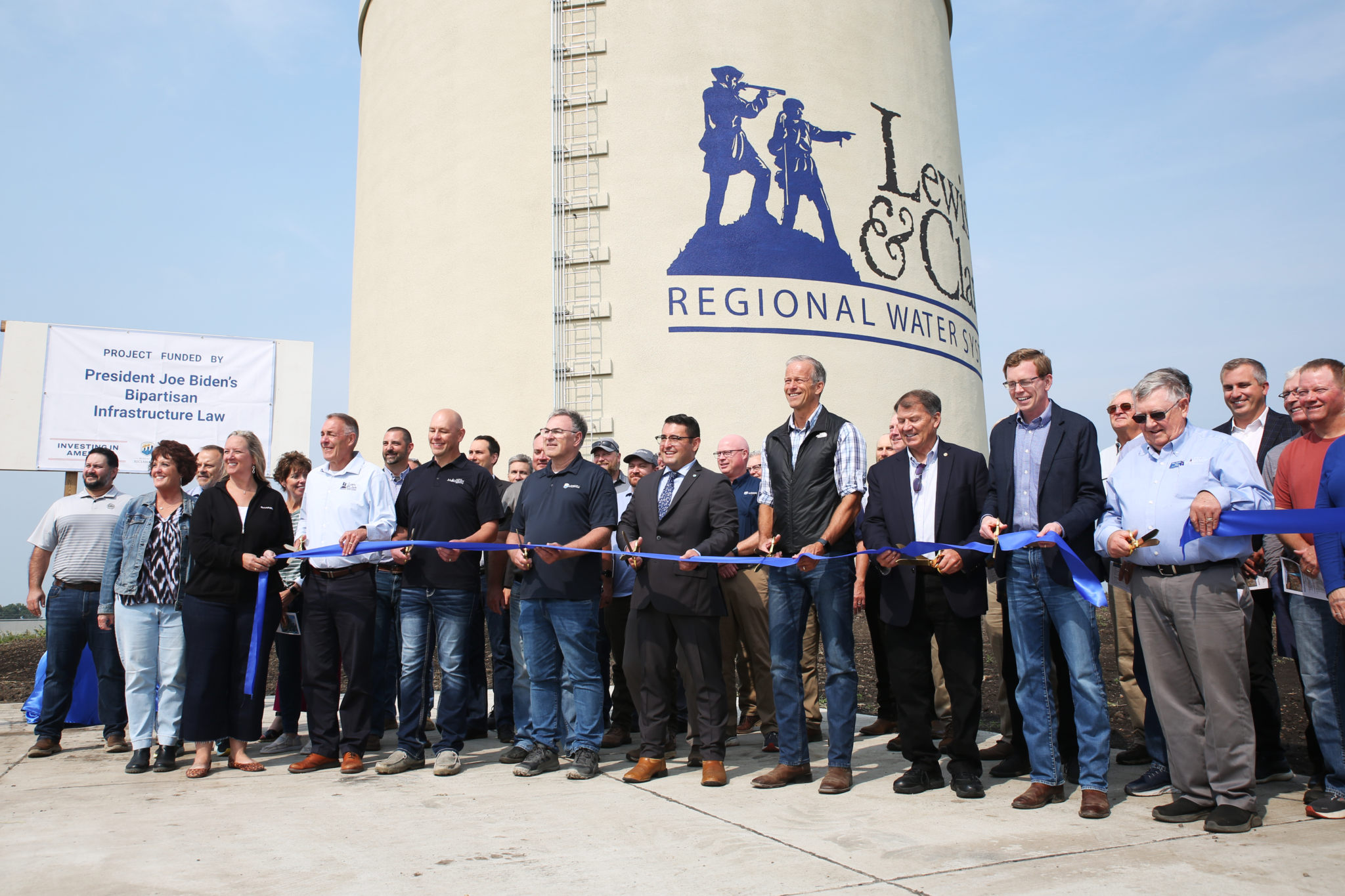
Makenzie Huber/South Dakota Searchlight
U.S. Rep. Dusty Johnson is taking criticism from his opponent for celebrating a water system’s progress this month, after he voted against a bill three years ago that provided some of the system’s most recent funding.
Johnson, a South Dakota Republican, voted against the Bipartisan Infrastructure Law that Democratic President Joe Biden signed in 2021. A provision in the voluminous bill provided $152.5 million that helped connect Madison to the Lewis and Clark Regional Water System. Johnson and other dignitaries celebrated the connection during a ribbon-cutting ceremony earlier this month.
Rep. Johnson’s Democratic challenger, Sheryl Johnson, criticized the congressman for posing “proudly” for a group photo at the event, in front of a sign declaring “Project funded by President Joe Biden’s Bipartisan Infrastructure Law.” South Dakota’s two Republican U.S. senators, both present at the ribbon cutting, were also criticized along with Rep. Johnson this week in a state Democratic Party news release for their lack of support for the bill.
Sheryl Johnson said in her own news release that Rep. Johnson was engaging in “double-talk, plain and simple.”
“Dusty wants to take credit for projects he’s tried to block funding for,” she said, “all while pushing policies that favor billionaires and his big-money donors over the needs of regular South Dakotans. South Dakota deserves better.”

Rep. Johnson said in 2021 that he voted against the $1.2 trillion bill because it was too costly and relied on one-time funding that would “create a massive fiscal cliff in a few years,” even though he supported the bill’s focus on roads, bridges and other infrastructure.
“I simply can’t support more unsustainable spending,” he said at the time.
He responded to Sheryl Johnson’s criticism in an emailed statement to South Dakota Searchlight.
“I’ve advocated for Lewis and Clark funding in every annual appropriations package since I’ve been in Congress,” Rep. Johnson said. “The recent infrastructure package did provide the final dollars for this project, but a huge bipartisan team set aside politics to provide the bulk of the funding over decades. I’m proud to be one of the leaders of that team.”
The pipeline delivering the water covers 310 miles and spans southeastern South Dakota, southwestern Minnesota and northwestern Iowa. The roughly $700 million water system has been under construction for more than 20 years and serves about 350,000 people. The water source is a series of wells that tap into an aquifer adjacent to the Missouri River.

As of March, the Bipartisan Infrastructure Law had provided $2.5 billion to 357 projects in South Dakota. About $1.6 billion went toward transportation, $402 million for water quality and infrastructure, and $310 million for broadband internet.
Lewis and Clark Regional Water System Executive Director Troy Larson said in an emailed statement that the infrastructure law has been a “godsend” and helped accelerate the project. He added that the nonprofit water system has worked with Republicans and Democrats to further its mission.
Before being elected to the U.S. House of Representatives, Rep. Johnson worked for Gov. Mike Rounds and Gov. Dennis Daugaard and helped secure state funding, Larson said. Rep. Johnson has since “taken the lead” in the House to increase funding for the Bureau of Reclamation’s rural water program, Larson said, and is the nonprofit’s “go-to guy” in the House for non-financial issues such as administrative delays.
“His office is usually the first one we call,” Larson said.
